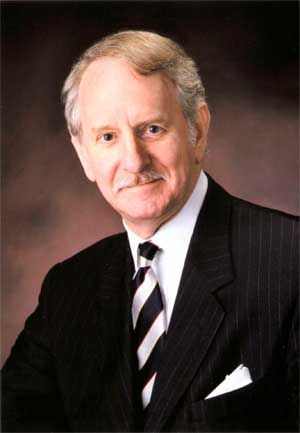
Contribute to the fund!
DAVID K.C. COOPER YOUNG INVESTIGATOR AWARD
David K.C. Cooper studied medicine at Guy’s Hospital Medical School in London (now merged with King’s College London). He subsequently trained in general and cardiothoracic surgery in Cambridge and London. He was present at the first heart transplant in the UK in 1968. In 1980, he took up an appointment in cardiac surgery at Groote Schuur Hospital at the University of Cape Town, under Professor Christiaan Barnard (who, in 1967 had carried out the world’s first heart transplant). In 1987, he relocated to the Oklahoma Transplantation Institute in the USA where he continued to work in both the clinical and research fields.
With colleagues, he identified the importance of the Gal antigen in xenotransplantation. After 17 years as a surgeon-scientist, he decided to concentrate on research, initially at the Massachusetts General Hospital/Harvard Medical School in Boston, subsequently at the Thomas E. Starzl Transplantation Institute at the University of Pittsburgh, and now at UAB. His major interest is the xenotransplantation of organs, islets, and corneas in pig-to-nonhuman primate models, with the aim of using genetically-engineered pigs as a solution to the organ shortage for clinical transplantation. The Royal College of Surgeons of England appointed him to a Hunterian Professorship (1983), Arris and Gale Lectureship (1988), Amott Lectureship (2002), and awarded him the 1997 Jacksonian Prize and Medal. Professor Cooper has published more than 850 medical and scientific papers and chapters, has authored or edited 11 books, and has given more than 300 invited presentations worldwide. Between 1994-7, he was Honorary Secretary/Treasurer of the International Society for Heart and Lung Transplantation.
He was the Founding Honorary Secretary of the International Xenotransplantation Association, IXA) in 1997, its President in 1999-2001, and the Editor-in-Chief of the official Journal of the IXA, Xenotransplantation, from 2001-7. In 2009, he was elected to Honorary Membership of the IXA. He has also received the American Society of Transplant Surgeons (ASTS)-Roche Presidential Travel Award (2007), The Transplantation Society-Roche Award for Excellence in Translational Science (2010), the American Society of Transplantation (AST) Basic Science Established Investigator Award (2014), and The Transplantation Society’s Award for Outstanding Achievement in Transplantation (Basic Science) (2016).
He has trained numerous international fellows in cardiac surgery, transplantation, and xenotransplantation. He is very active in the field of xenotransplantation research and currently serves as the Co-Director of Xenotransplantation Program at University of Alabama at Birmingham. His research has been continuously supported by the NIH over 30 years.
To be eligible for the David K.C. Cooper Young Investigator Award:
- Submit at least one abstract as a presenting author to the IXA Congress
- Be a young investigator (<=45 years old at the time of IXA Congress).
- A supporting letter must be submitted as a part of the award application. This letter must be signed by the applicant's Training Program Director to verify the applicant’s status as a young investigator. Authors will not be considered for an award if the required letter is not sent. The applicant MUST be the presenting author. No exceptions will be made.
- Must attend the designated award presentation session scheduled during the Congress to receive the award.
Process for bestowing the award:
- Awardee will be selected as the best scored abstract submitted to the IXA Congress (in case of joint Congress – to the IXA section) among young investigators eligible based upon the abstract's degree of excellence (top score), as determined by the Scientific Program Committee (SPC).
- In case there will be more than one applicant achieving identical top scores, the IXA Congress Scientific Program Committee and the IXA Council Award Committee will determine the awardee based on the importance of contribution, prioritizing the senior presenting author among top score achieving authors.
- The award is $1,500 USD, which will be presented to the awardee during the Award Session of the IXA Congress.
- Final selection of recipient will be approved by the IXA Award Committee.
- The awardee of the David K.C. Cooper Award is not eligible for the IXA/TTS Scientific (Young Investigator) Award at the same time in the same Congress.
Contact
Address
The Transplantation Society
International Headquarters
740 Notre-Dame Ouest
Suite 1245
Montréal, QC, H3C 3X6
Canada
